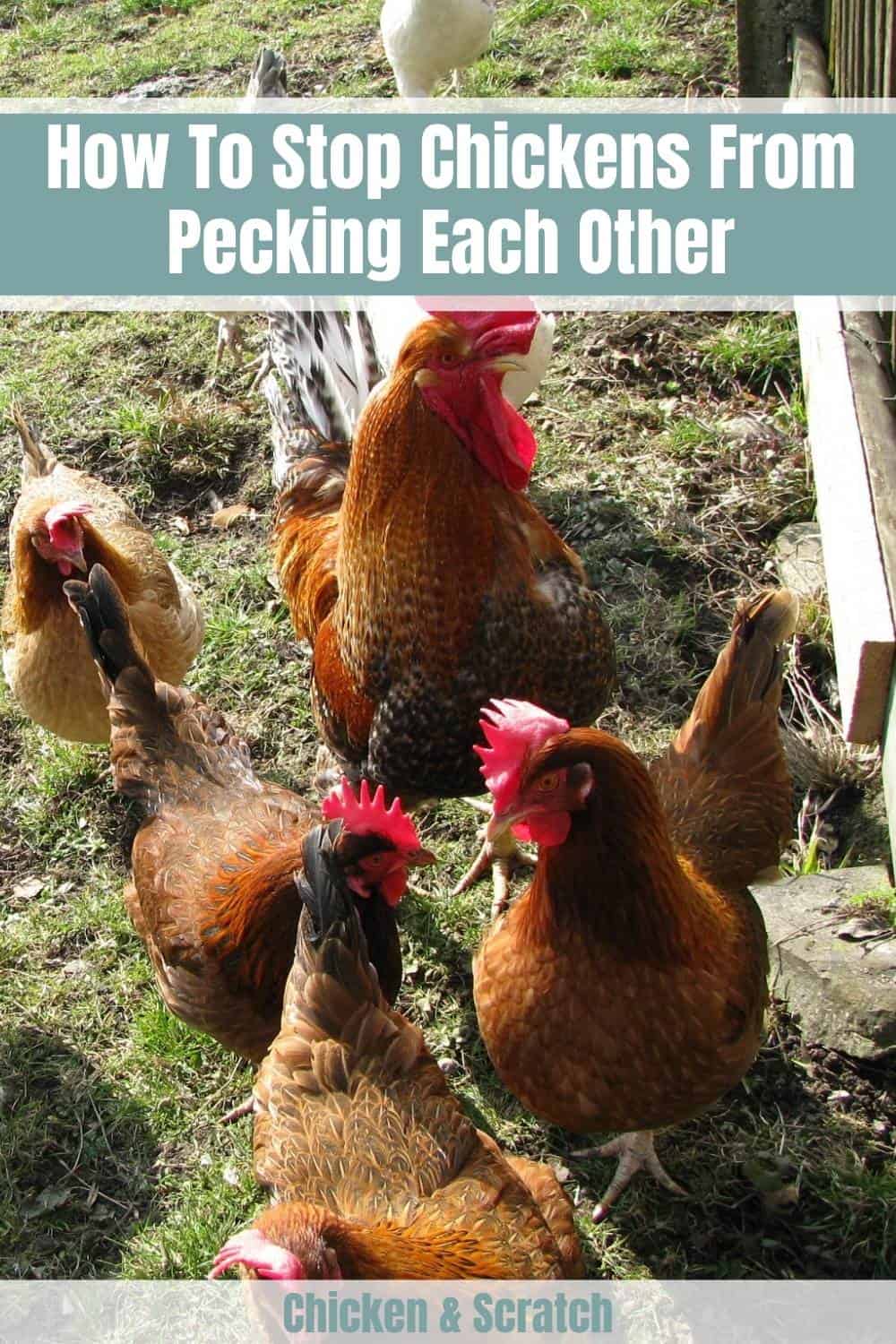Do you have chickens pecking on other chickens? Some chicken breeds are friendly, yet chicken bullying is present in every yard. So, how to stop your chickens from pecking each other? Keep reading this article to know the adequate steps to break and avoid bullying in your flock.
Understanding The Pecking Order
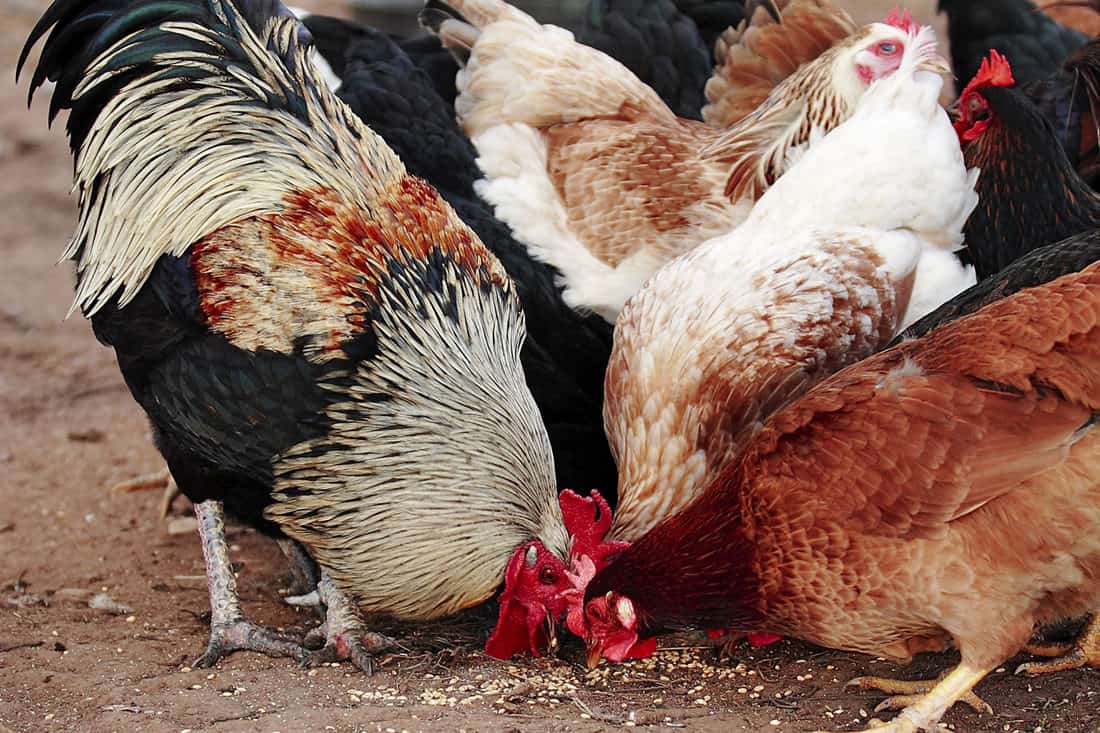
Before you manage your chickens pecking at each other and bullying, you must first know both your flock’s typical behavior and pecking order. By then, you can tell the distinction between typical pecking and bullying.
The pecking order is the hierarchy of a flock of chickens. The ranking is essential as it brings about how the chickens live inside the flock.
The higher levels of the hierarchy hold the healthiest and on top form chickens. The weaker and more docile chicken breeds belong at the lower levels.
You can observe how chickens play out their pecking orders in their daily activities through eating time. The first ones to get access to food and water are the chickens on top of the pecking order, while those at the lower levels eat what’s left afterward.
You may find the pecking order cruel, but it’s a natural system. More so, the chicken hierarchy also warrants that when worst circumstances happen, the healthiest chickens will survive.
So, how do we describe pecking order behavior? This kind of behavior is purposeful—chickens who want to climb the hierarchy act on this deed. The fowl will act in an assertive way to threaten weaker chickens so it can determine the hierarchy. The aggressiveness includes preventing access to food and water, pecking, and pushing around.
Pecking order behavior is not a significant issue because it’s primarily short-lived. Once there is an established hierarchy, the assertive pecking should discontinue.
When the pecking behavior doesn’t stop after establishing the hierarchy and pursuing a specific chicken, it’s chicken bullying.
There are many reasons why chickens bully other chickens, and boredom or stress is one of them. But, bullying is by no means acted for a particular reason like pecking order behavior.
The good news is, there are easy techniques to stop your birds from pecking each other and preventing it from happening in the first place. Read to find these ten successful tips to stop chickens from pecking.
Find Out The Reason
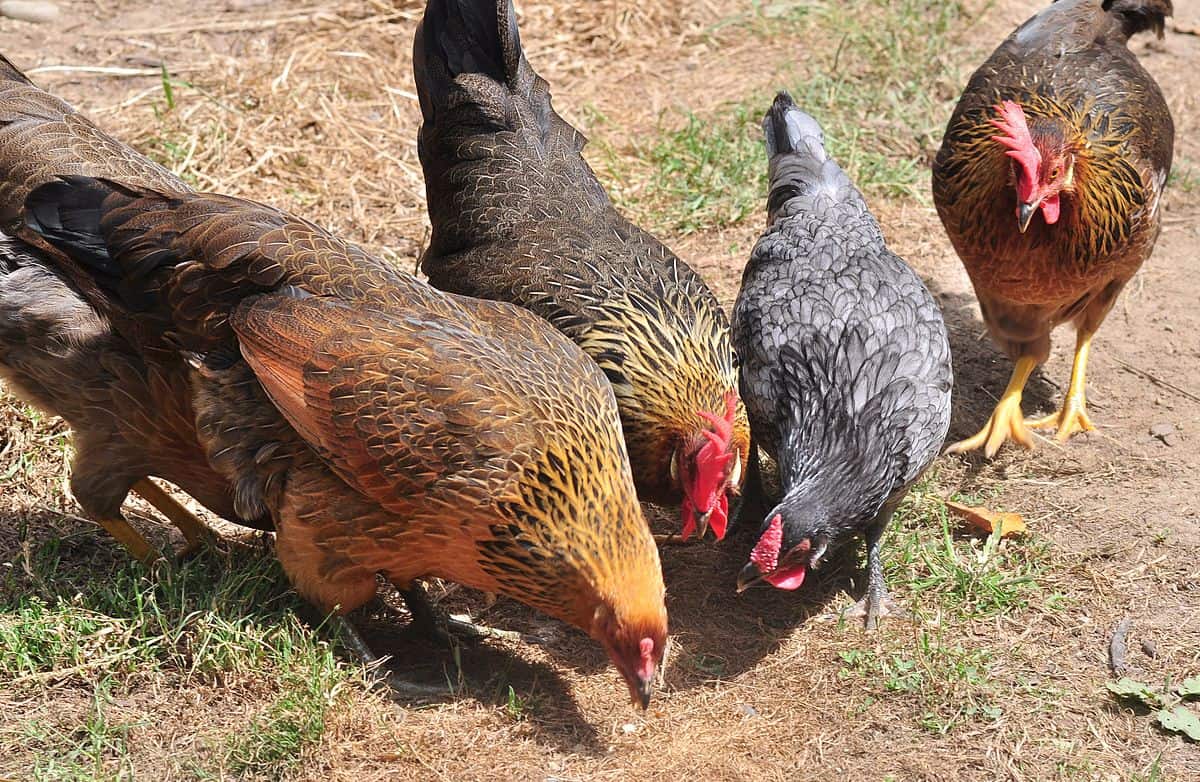
It’s best to identify what causes your chickens to act out, especially if the pecking is becoming more aggressive. Observe well your backyard homestead and begin with a list of questions about it.
- Are the chickens too crowded?
- Are the chickens hot or cold?
- Is there something inside or outside the coop that stresses the chickens?
- Do the chickens ever run out of food or water?
When you can determine the stressor or reason for the pecking, the next step will be easy. You have to eliminate the problem so the pecking behavior will also go away.
Implement An Overall Inspection Of Living Conditions
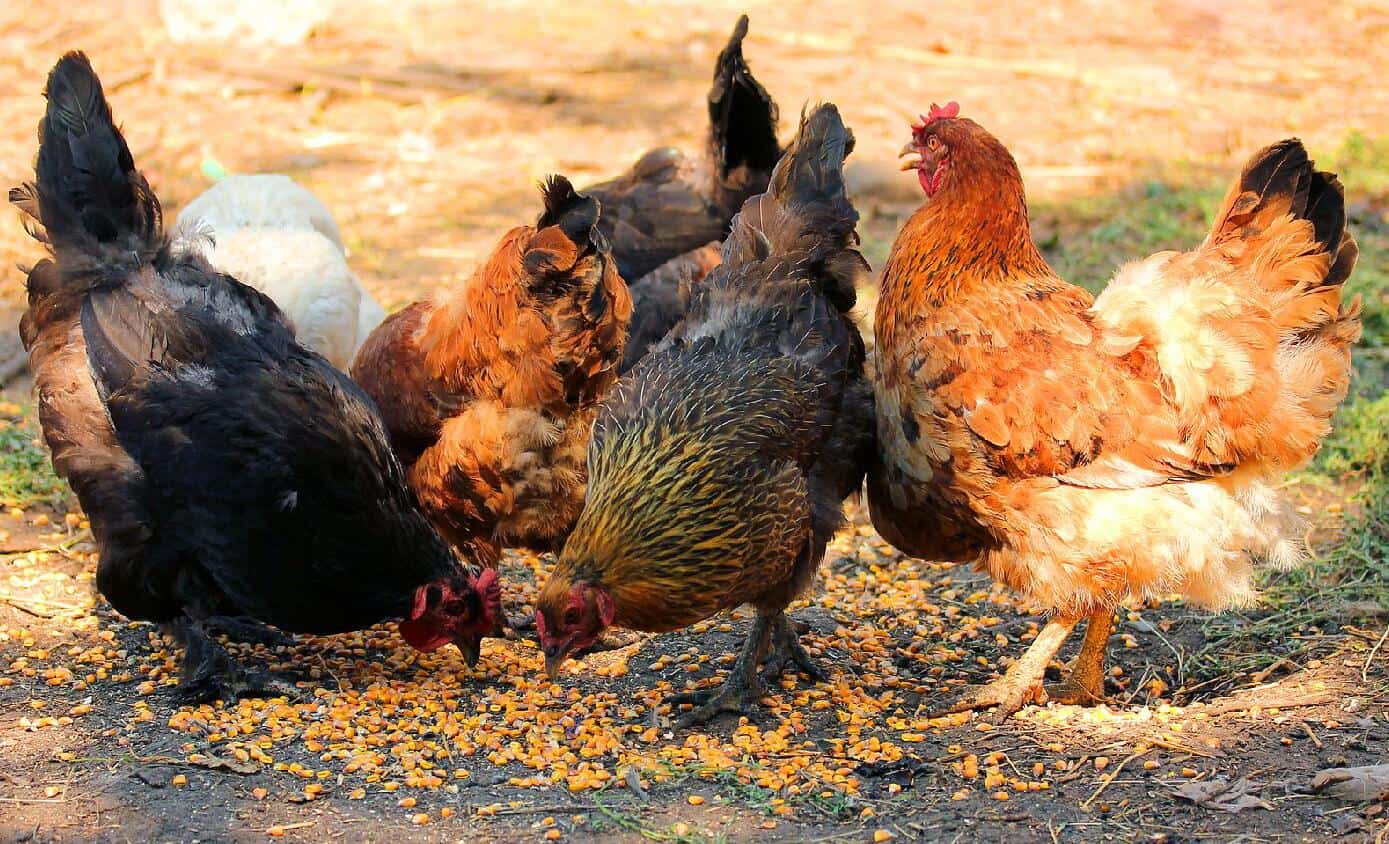
Chickens can feel boredom and frustration without a doubt. How do chickens express these emotions? These birds peck at weaker members of the flock. The causes can vary from the adjustments in their environment like adding new chickens in the flock, overcrowding, overheating, and many more.
The best thing to do is to make an overall inspection of the living patterns. The check should be within and outside the chickens’ coop.
Also, the inspection doesn’t happen in one day only. The general examination should continue for several days, complete with your notes.
The notes on your observations on what your chickens eat, where they go, and what they do will help you create the changes you need to make.
Make Certain Each Chicken Has An Adequate Amount Of Space
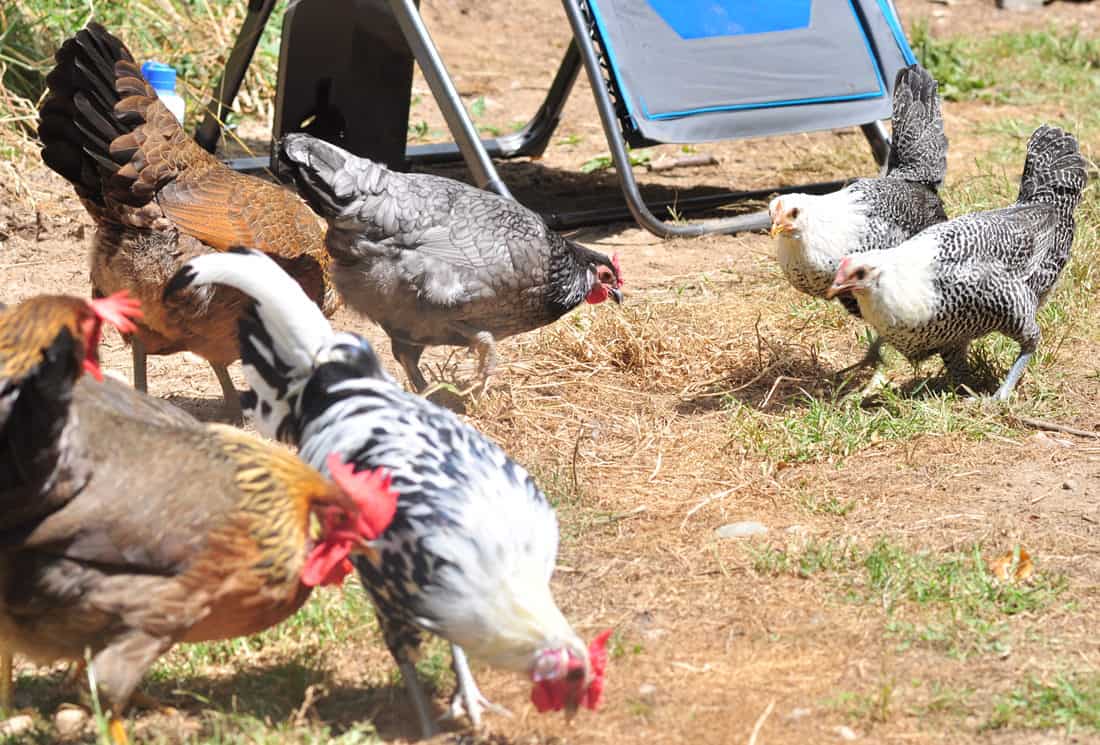
One step for frustration between your chickens is a congested coop. Make sure that the dimensions of your coop adhere to the general rule of thumb for sheltering chickens.
Each chicken needs two to four square feet. More so, each of these birds needs an outdoor range of eight to ten square feet.
Make a slide on the lower side of the inside coop area for your chickens if you have a space for free-range. So that when your fowls need space, they can slip and go outside.
Provide Enough Nest Boxes
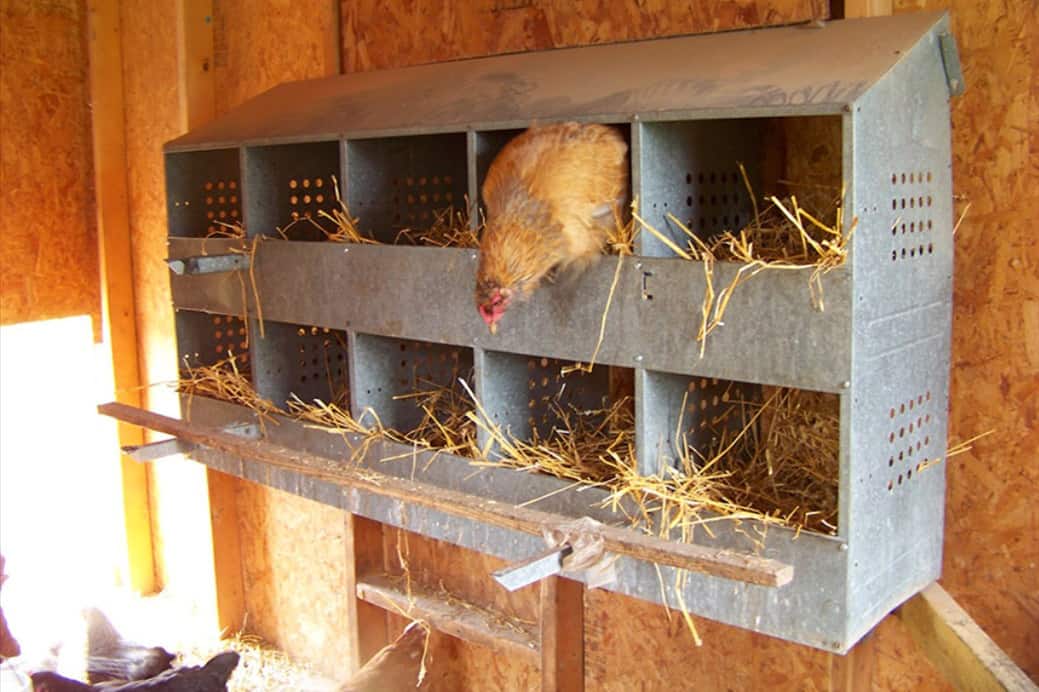
Providing a suitable space and number of nest boxes prevents cannibalism. More so, don’t put bright lights near the laying and nesting spaces. A dark nest box allows the hens a safe place to lay their eggs. More so, it prevents exposure of the everted cloaca that happens when hens lay eggs. Cloaca is very well desirable for pecking; that’s why outbreaks of cannibalism arise during egg-laying.
Separate Wounded Chickens To Prevent More Injuries
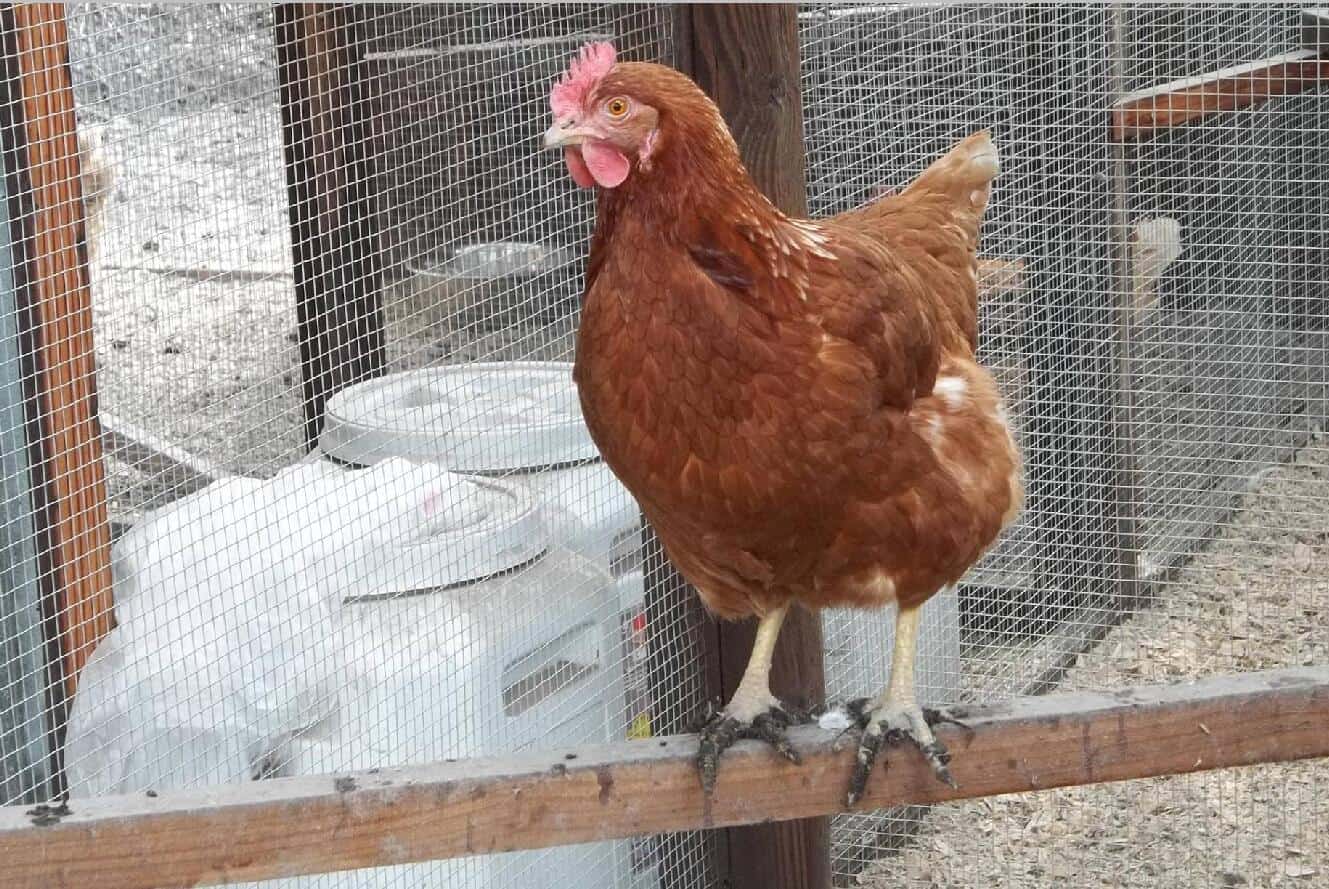
A wounded chicken is like wearing a sign that prints, “hey, peck me!” It’s because blood entices chickens. As a concerned poultry owner, make sure to inspect your chickens regularly to find out if there is an injured flock member.
By then, you can isolate the harmed members from the rest of the flock. Isolating the injured chicken is protecting it from the rest of the flock as well.
Furthermore, check the coop’s state to ensure there are no damages like sharp edges that can hook. Specific injuries mentioned can also cause unintended harm to any member of your flock. That’s why maintenance inspections on the cages are essential.
Limit Light Exposure As Chickens Need Their Night-Time Too
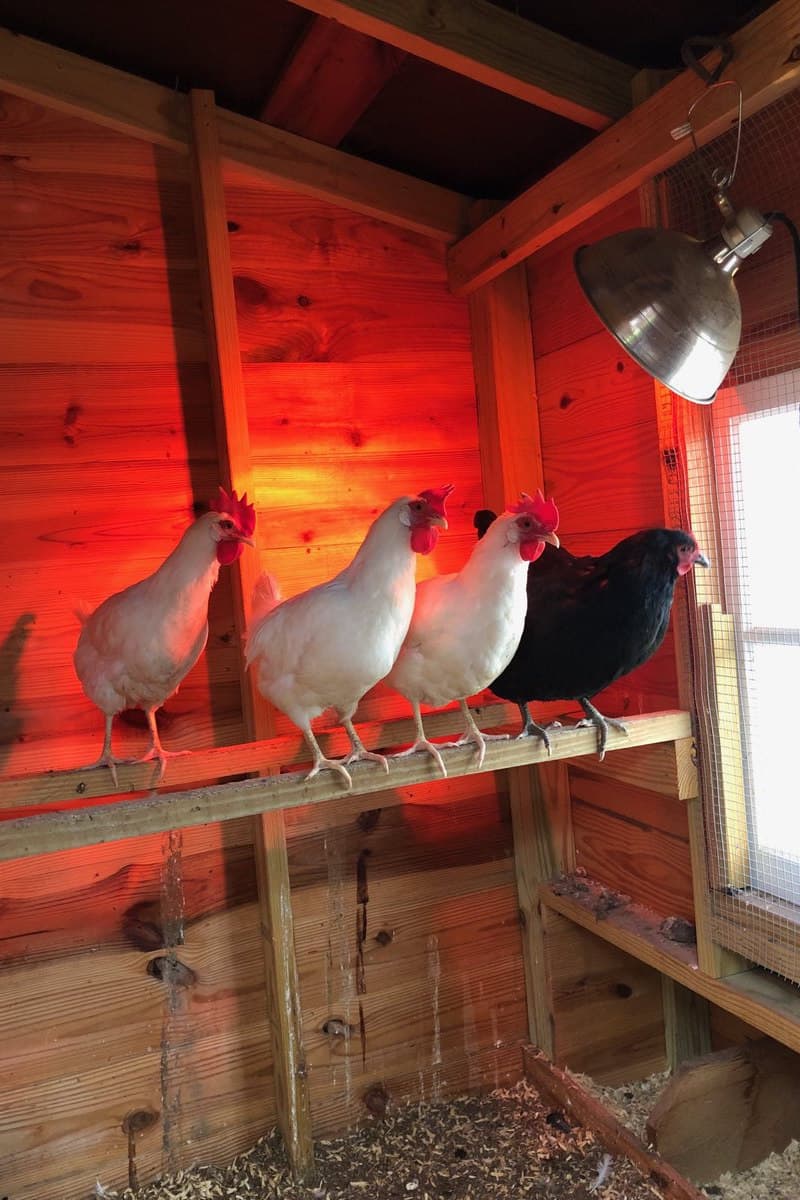
Chickens are very particular about their light exposure, generally requiring around 14-16 hours of daylight and 8-10 hours of darkness each day. When your chickens have disproportionate lighting, they get stress which often leads to violent manners.
Winter periods can also help chickens because there is less daylight time. Winter can make chickens stay in a different biological rhythm with the sunlight patterns and seasons.
More so, avoid white bulbs with more than 40 watts of power if you use artificial lights for your coop. To provide heat for your chickens and you need a more powerful bulb, it’s best to acquire an infra-red or red bulb.
Make Sure Your Coops Are Well-Ventilated And Cool
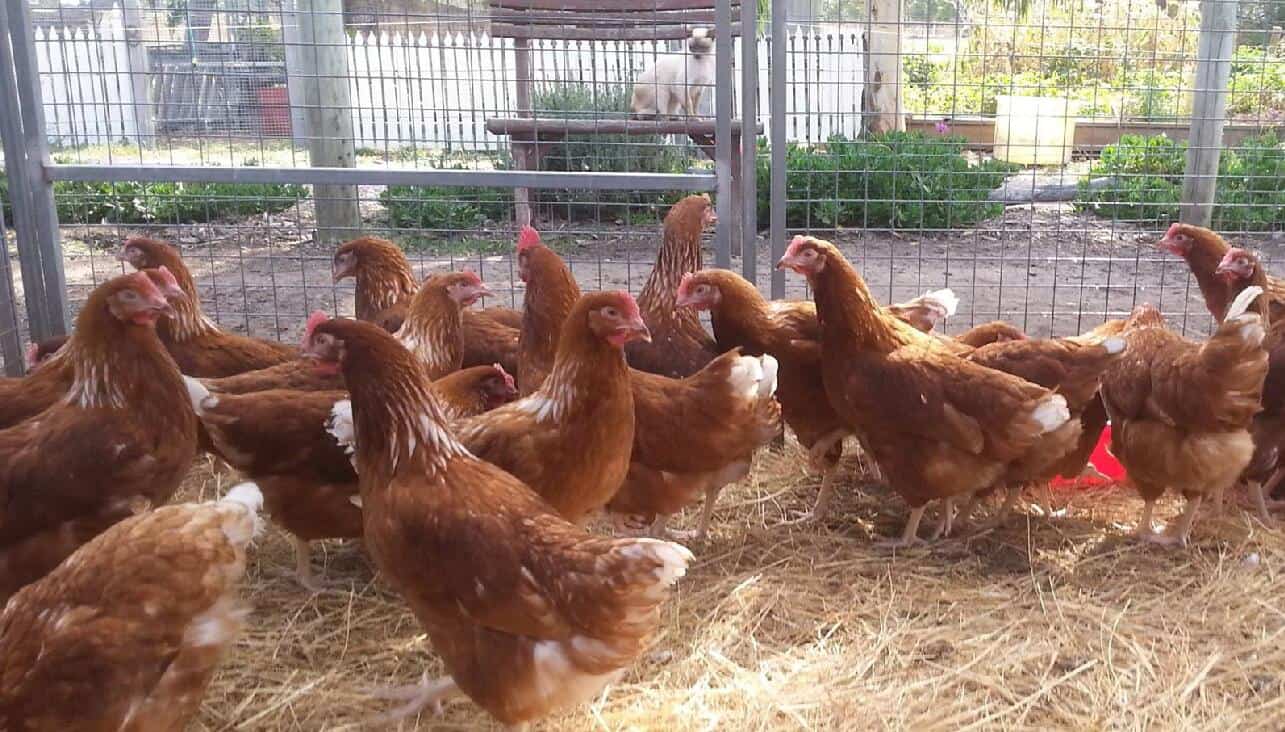
Extreme high or low temperatures are a no-no for your chickens. A significant temperature swing from one day to the next is also not a thing for any chickens.
Ensure that their coop can shield them well from crazy weather patterns. More so, the coop needs to be well-ventilated.
Check if the temperature goes with what your flock needs. Check the seasonality as well because mostly, it’s more difficult during the summer than in the winter seasons.
But, chicks need higher temperatures than older chickens. So, these younger chickens need to be brooded at 95 degrees Fahrenheit for a week after they come out from the eggs. Then, decrease the temperature by five degrees Fahrenheit weekly until the temperatures inside are similar to that outside.
Provide Dust Baths
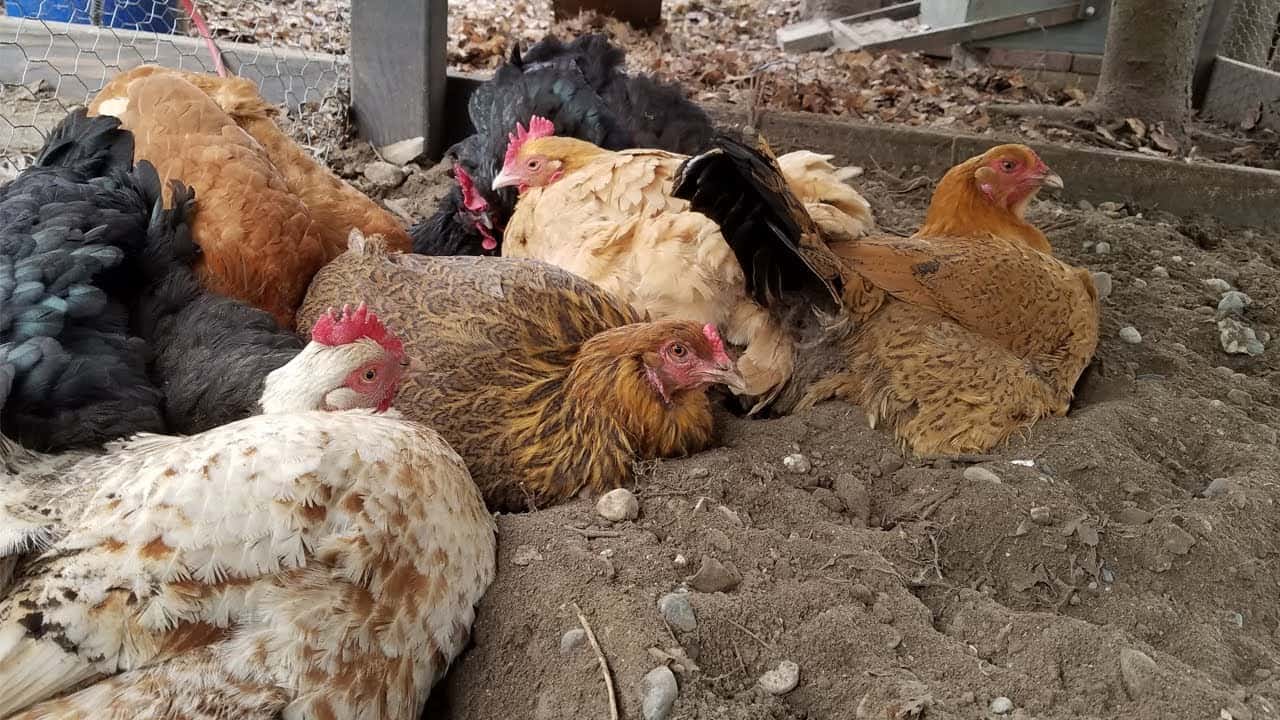
Another step to avid feather picking is to keep your chickens clean. Dust bathing is when chickens dig a narrow hole, slacken off all the dirt, and cover themselves in the spot. It’s the chickens’ drive to help them keep clean.
You can create dust baths for your chickens in two easy steps.
Find a container at least 12 inches deep, 15 inches wide, and 24 inches long.
Mix an equal composite of sand, natural soil, and wood ash.
Then, you can enjoy witnessing how your chickens roll around your DIY dust bath and dust themselves.
One of the benefits of dust baths is that it prevents external parasites like mites and lice. If you think your birds have mites and lice, you can add a cup of two of food-grade diatomaceous earth. Make sure to mix the diatomaceous earth well, as it can be dangerous to your chickens when they inhale it to a large extent.
Provide Entertainment Or Toys If Needed
Did you know that keeping your chickens entertained is a successful method to keep them from trouble? It’s not difficult to think and prepare for any entertainment or toys for your chickens. You can decide to go DIY by crafting or be creative using items like logs to create chicken swings.
There are also several chicken-specific seed blocks you can set up for your flock for pecking. What are these chicken-specific seed blocks? It’s only a condensed block of grains full of vitamins, amino acids, minerals, and other nutrients.
It’s a dual-purpose implement for your chickens. This seed block doesn’t only provide additional nutrition for your chickens. It also prevents them from pecking other fowls.
Provide A Balanced Diet For Your Chickens
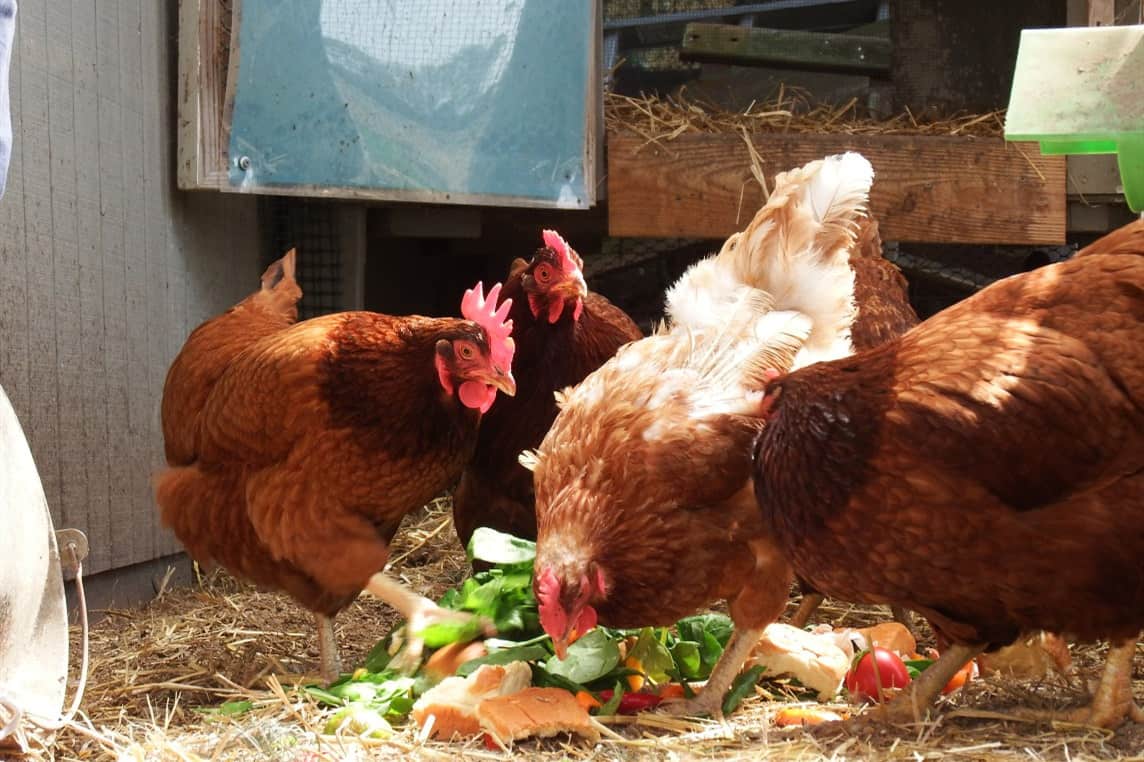
Sometimes, chickens think that their fellow feathered animals can be their supplement to their diets. So, to provide the cannibalism scenario, give your chickens the nutritional chucks they need.
One paramount supplement chickens need most is protein. Ensure your chickens ingest enough protein by providing them with a diet rich in high-quality poultry feed.
Kale, turnips, lettuce, and clover, among other greens, supply fiber to keep chickens full. So, you can include these greens in your birds’ diet. Also, to stop their appetites for blood, occasionally serve their drink with electrolyte solutions (one tablespoon per liter of water). This solution keeps the chickens’ salt and sodium levels high as much as necessary that stops the possibility of cannibalism among your chickens.
Isolate The Offending Chicken
Put the offending bird in timeout between three to seven days. Isolating the bully chicken should help mellow the situation as well.
Trim The Beak Of The Offending Chicken
When you cut back the offending chicken’s beak, you also prevent its capability to injure other flock members. Don’t try to trim yourself if you have no experience yet or no knowledge in this area. You can hire or talk to a veterinarian or professional to do this task.
Remove Or Rehome Repeat Offenders
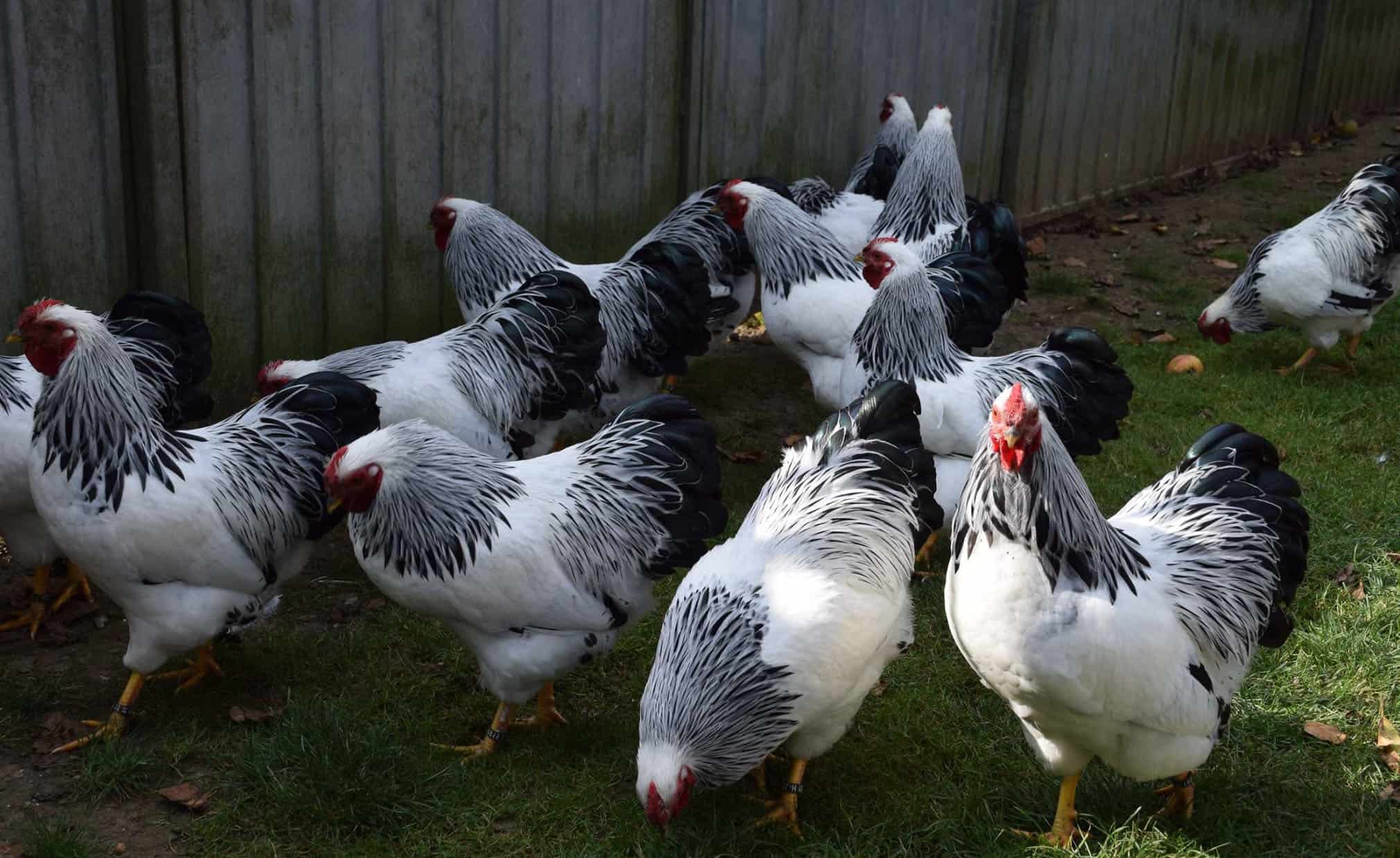
When you’ve done everything on the list but still can’t stop your offending chicken from harming others, it might be time to rehome or remove it from your flock. If your rooster or hen is too hostile or assertive for your coop, you may have no other option but to rehome or remove it from your flock.
Consider culling or removing the offending chicken from your homestead through another humane alternative if rehoming isn’t achievable.
Summary
The real key is to understand the distinction between pecking orders and chicken bullying. By then, you can determine the problem and find the practical solution to stop your chickens from pecking each other. And then, you’ll have a flock of peaceful and happy chickens.
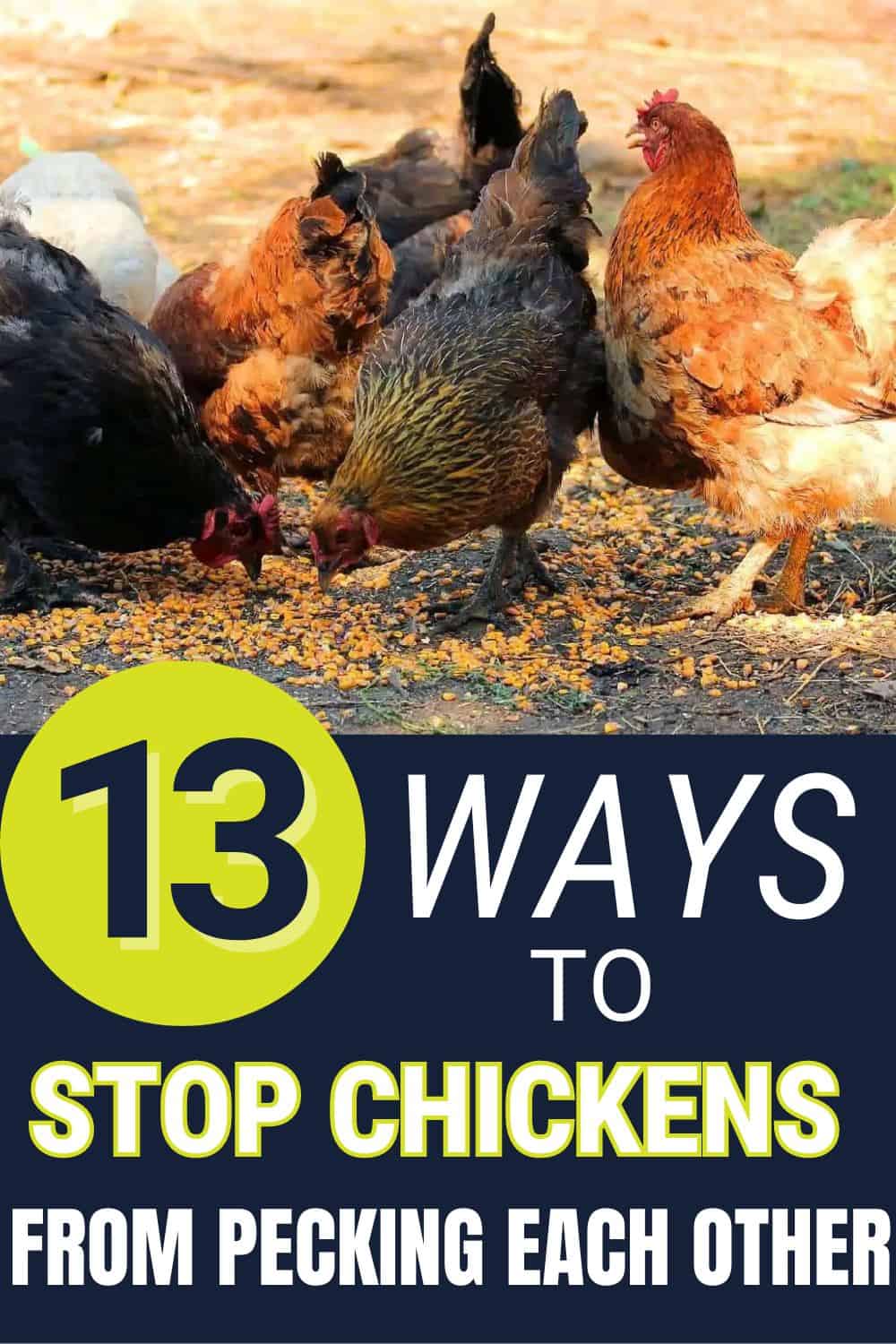

Joseph Hudson has been raising chickens for over 15 years. In 2018, he completed the Agriculture & Natural Resources program at Mt. San Antonio College. He currently raises over 1400 chickens on his 7.5-hectare farm. He keeps sharing his experience on raising healthy and happy chickens on Chicken Scratch The Foundry.
